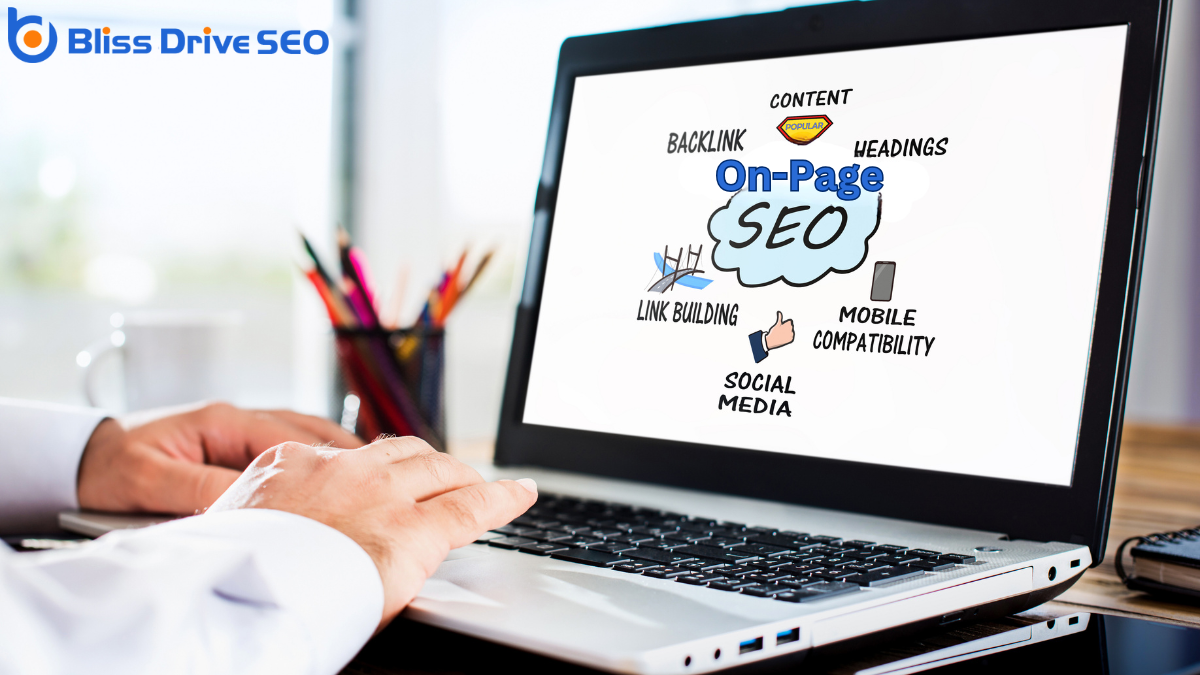Learn More About Us

You're probably wondering if SEO is all about backlinksLinks from other websites pointing to your website, crucial for SEO., right? While backlinks are essential, they're just a piece of the puzzle. Imagine focusing solely on them and ignoring other elements like on-page SEOOptimization techniques performed directly on the website, including content and HTML source code., content quality, and user experience. Would that really give you the edge in search rankingsThe position at which a website appears in the SERP.? There's more to explore when it comes to optimizing your site effectively. What about the technical aspects, mobile-friendliness, or keyword researchThe process of finding and analyzing search terms that people enter into search engines.? Each plays a significant role in driving organic trafficVisitors who come to a website through unpaid search engine results.. So, how do you guarantee a thorough approach that doesn't leave any stone unturned?
Backlinks play an essential role in SEO by acting as endorsements from other websites, signaling to search engines like Google that your content is credible and valuable. When someone links to your site, it's like a vote of confidence, suggesting that your content is worth sharing. These endorsements can help improve your rankings in search engine results pages (SERPs), making your website more visible to potential visitors.
To truly grasp their importance, think of backlinks as a kind of digital reputation system. The more high-quality backlinks you have, the more trustworthy you appear to search engines. But remember, it's not just about quantity; quality matters too. Links from reputable, authoritative sites carry more weight than dozens from low-quality sources.
You might wonder how to get these valuable links. Focus on creating compelling, shareable content that naturally attracts attention. Engage with your audience and industry peers, share insights, and participate in discussions. This organic approach often leads to others linking back to your work.
Always prioritize ethical link-building strategies, as search engines can penalize manipulative tactics, which could harm your rankings rather than help them.

While backlinks certainly play a vital role in SEO, focusing solely on them overlooks another key aspect: on-page SEO. When you optimize your website's pages, you're enhancing the site's structure, content, and overall performance. This process directly influences search engine rankings by making your site more accessible and relevant to users.
You should start by ensuring your page titles and meta descriptions accurately reflect the content and include relevant keywordsWords or phrases that users type into search engines to find information.. These elements help search engines and users understand what your page is about.
Additionally, using header tags (H1, H2, etc.) to organize your content improves readability and signal hierarchy and is important to search engines.
URL structure is another essential component. A clean, descriptive URL not only aids in user navigation but also provides search engines with context about your page's content.
Also, don't overlook the significance of internal linkingLinks that connect different pages on the same website.. By connecting related pages within your site, you enhance navigation and help distribute link equity, boosting the visibility of other pages.
Lastly, optimizing images by using descriptive alt tags and compressing file sizes will improve page load speed and accessibility. These steps greatly contribute to better on-page SEO, enhancing your overall search engine performance.
When it comes to SEO, content quality and relevance are paramount. You might think backlinks are the key to visibility, but search engines like Google prioritize content that truly serves the user's intent. Quality content isn't just well-written; it's informative, accurate, and engaging. It answers questions, solves problems, or entertains, depending on what your audience needs. Relevance guarantees your content matches what people are searching for, using appropriate keywords naturally within your text.
To create quality content, focus on depth and originality. Don't just repeat what's already out there. Provide unique insights backed by research or experience. This not only establishes authority but keeps your audience coming back. Structure your content with clear headings and subheadings, making it easy to read and digest.
Relevance requires you to understand your audience. What are they searching for? What language do they use? Use tools to find trending topics and keywords related to your nicheA specific segment of the market targeted by affiliates to promote products or services.. But remember, keyword stuffingOverloading a page with keywords to manipulate search engine rankings. is a big no-no. Integrate keywords naturally and make sure they add value.
In essence, high-quality, relevant content is the backbone of effective SEO, drawing organic traffic and building lasting credibility.
Imagine landing on a website with a cluttered design, slow loading times, and confusing navigation; you'd likely leave in frustration. That's exactly what you want to avoid when considering user experience (UX)The overall experience a user has when interacting with a website or application, including usabilit... as an essential factor in SEO. While backlinks are important, search engines also prioritize how users interact with your site. A positive experience can leadA potential customer referred by an affiliate who has shown interest in the product or service but h... to longer visits, lower bounce rates, and ultimately, better rankings.
Start by ensuring your site's design is clean and intuitive. Users should find what they need without sifting through chaos. Simplifying navigation helps visitors locate information quickly, boosting their satisfaction and engagementThe interactions that users have with a brand’s content on social media..
Don't underestimate the power of speed, either. Users expect fast-loading pages; if your site lags, they'll abandon it for a faster competitor.
Mobile optimizationDesigning and formatting web content to ensure it performs well on mobile devices. is another vital aspect. With more people browsing on their phones, your website must be responsive and function seamlessly across all devices.

To truly enhance your site's SEO, you can't overlook the importance of technical aspects.
Focus on optimizing site speed, as slow loading times can drive users away.
Prioritize a seamless mobile experience and guarantee search engines can efficiently crawl your site for improved visibility.
While many factors contribute to a website's success, optimizing site speed is undeniably crucial for technical SEO. You might wonder why site speed matters so much. Well, a faster site enhances user experience, reduces bounce rates, and boosts search engine rankings. Here's how you can optimize your site speed effectively:
Improving site speed is just one part of the bigger picture when optimizing your website for search engines. You can't forget about enhancing the mobile experience, which is essential with the rise in smartphone usage. Search engines prioritize mobile-friendly sites, so ensuring yours is responsive is key.
Start by adopting a responsive designA web design approach that makes web pages render well on a variety of devices and window or screen .... This means your site's layout adjusts seamlessly across different devices, providing an ideal viewing experience on mobile screens.
You should also consider the size of buttons and links. They need to be large enough for users to tap easily, avoiding frustration and accidental clicks.
Evaluate your website's mobile usability through tools like Google's Mobile-Friendly TestA tool that evaluates how well a website performs on mobile devices.. This tool identifies issues that may hinder a visitor's mobile experience. Additionally, minimize pop-ups and interstitials, as they can be intrusive on smaller screens and negatively affect user experience.
Don't overlook the importance of mobile navigation. A clean, intuitive menu helps users find what they're looking for without hassle.
Boost your site's visibility by addressing crawl efficiency, a core aspect of technical SEO essentials. When search engines crawl your site effectively, they index your pages more accurately, leading to better rankings. To improve crawl efficiency, focus on making your site easy to navigate and understand.
Here's how you can achieve that:

You've probably noticed that faster websites keep users engaged, which is a huge advantage for SEO. Site speed isn't just about user experience; it's also a key factor in Google's ranking algorithm.
To boost your site's performance, focus on optimizing elements like images and scripts to reduce load times.
A website's loading speed isn't just a technical detail—it's an important factor impacting user experience and search engine rankings. When your site loads quickly, visitors are more likely to stay and explore, which can lead to higher engagement and conversions. Here are some benefits of faster load times:
Understanding the impact of site speed on search engine rankings is essential for anyone aiming to optimize their online presence. When a site loads quickly, it not only enhances user experience but also sends positive signals to search engines. Google, for instance, considers site speed a ranking factor. If your pages load slowly, users are likely to bounce, which can negatively affect your site's performance in search results.
You might wonder why speed matters so much. Well, think about it: nobody wants to wait around for a page to load. If your site takes too long, visitors will leave and may never return. This behavior informs search engines that your site isn't providing a good experience, impacting your rankings.
Fast-loading sites contribute to lower bounce rates and higher user engagementThe level of interaction and involvement users have with social media content.. This means visitors are more likely to stay and explore your content, which can result in better rankings.
Additionally, mobile users, a significant portion of web trafficThe number of visitors to a website, often used as a measure of an affiliate's reach and influence., are particularly sensitive to site speed. Slow loading times can deter them more than desktop users.
Maximizing efficiency is crucial when it comes to optimizing page performance, especially in the realm of site speed. Users expect swift loading times, and search engines like Google prioritize fast sites. Improving your site's speed isn't just about pleasing algorithms; it's about enhancing user experience and boosting engagement. Consider these steps to optimize your site's speed:
In today's digital landscape, mobile-friendliness in SEO is essential for reaching your audience effectively. With more people browsing on their phones, search engines prioritize mobile-friendly websites. If your site isn't optimized for mobile, you're likely missing out on critical traffic and engagement. Mobile-friendliness impacts how your pages rank in search engine results, making it important for your SEO strategy.
You've got to make sure your website is responsive, which means it should adapt seamlessly to different screen sizes and orientations. A responsive design improves user experience, reducing bounce rates and increasing the time visitors spend on your site. Nobody wants to pinch and zoom on tiny text or deal with slow-loading pages. Fast loading times are important; they not only enhance user satisfaction but also meet search engine expectations.
Another key aspect is easy navigation. Simplify menus and make sure buttons are finger-friendly. Mobile users are often on the go, seeking quick and easy access to information.
Don't forget to test your site on various devices and screen sizes to identify potential issues. By prioritizing mobile-friendliness, you're setting your site up for better visibility and user engagement.

When diving into SEO, keyword research stands as a cornerstone for tapping into your site's potential. Understanding what your audience is searching for allows you to tailor content that meets their needs, driving more relevant traffic. By identifying these key terms, you align your content strategyA plan for creating, publishing, and managing content to meet business goals. with user intent, enhancing visibility and engagement.
Here's why keyword research is vital:
Don't overlook the importance of keyword research in shaping your SEO strategy. It's not just about finding popular terms but about understanding your audience's journey and crafting content that resonates. With effective keyword research, you access the power to connect, engage, and convert.
Focusing on local SEOOptimization strategies aimed at improving a website’s visibility in local search results. strategies can greatly improve your business's visibility in your community. When you optimize for local search, you're basically making it easier for people nearby to find your business online.
Start by claiming and optimizing your Google My Business listing. Guarantee your business's name, address, and phone number (NAP) are consistent across all platforms. This consistency signals to search engines that your business is reliable and trustworthy.
Another effective strategy is incorporating local keywords into your website content. Think about how your customers might search for your services. If you own a bakery in Denver, phrases like "best bakery in Denver" or "Denver cupcakes" can attract local traffic.
Don't forget to encourage customer reviews. Positive reviews not only enhance your reputation but also improve your local search rankings.
Additionally, make sure your website is mobile-friendly. Many local searches happen on mobile devices, so a responsive design can greatly impact user experience and search rankings.
Lastly, consider creating locally focused content. Blog about community events or partnerships. This not only engages your audience but also strengthens your connection to the local community, reinforcing your relevance in local searches.

While local SEO strategies provide a strong foundation for increasing visibility in your community, staying ahead demands attention to emerging SEO trends. The digital landscape is always changing, and keeping up with these trends can set you apart from your competition. Here are some key trends you should focus on:
SEO isn't just about backlinks; it's a multifaceted approach. You need to focus on on-page SEO, ensuring your content is high-quality and relevant. Don't overlook user experience—make sure your site is easy to navigate and fast. Technical SEO is essential, and your site should be mobile-friendly. Keyword research guides your strategy, and local SEO can't be ignored. By embracing these elements, you'll set yourself up for long-term success in organic search rankings.
